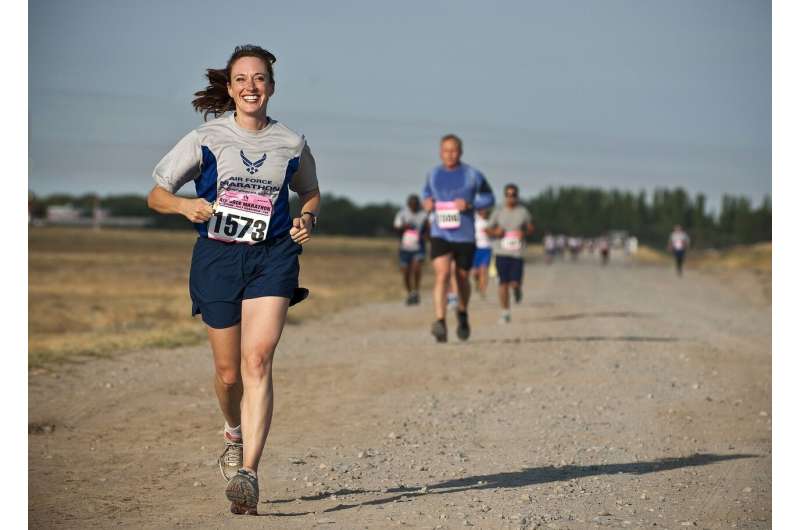Concussion risk is higher in female athletes

With schools starting back for the year, many young athletes are returning to sports—and with that comes the possibility of injuries, including concussions.
Sport-related concussions are often recognized as a health issue in football. However, athletes in nearly all sports are susceptible to these injuries, and research shows that young female athletes have nearly double the risk of concussion compared to their male counterparts in common sports including basketball and soccer.
Why is concussion risk greater for female athletes? Right now, the reasons for this are not clear. Possible factors leading to higher concussion rates in women/girls include head and neck strength, hormonal differences, and a difference in the reporting habits of a concussion between boys and girls.
Which sports are at the greatest risk for concussion in female athletes? The sports at greatest risk are those that include the most physical contact, including soccer, basketball, cheerleading and ice hockey.
However, it's important to note that a concussion can happen in nearly any sport. Athletes, parents, coaches and healthcare professionals need to be able to recognize the signs and symptoms of these injuries.
What are the symptoms of a concussion? The most common symptoms include headache, nausea, trouble thinking normally, memory problems, fatigue, impaired balance, dizziness, vision problems and changes in sleep patterns. Research suggests that women report more of these symptoms than men.
While many of these symptoms begin right after an injury, some may take days or weeks to manifest.
What should I do if I suspect my child has a concussion? If you suspect your child has sustained a concussion, seek medical treatment as soon as possible because delaying treatment can have serious consequences and can prolong recovery time.
Many schools have an athletic trainer on staff, and they are trained to recognize the symptoms of and manage sports-related concussions. If your young athlete has as head injury, report it to the athletic trainer immediately.
If your child experiences mild symptoms outside of the school setting, I recommend going to your family physician, a sports medicine specialist, or an urgent care treatment center within 24 hours. If symptoms are severe or progress, go to the emergency department.
Once a healthcare professional has diagnosed your child with a concussion, give him or her time to recover. While some patients become symptom-free within a few days, others may require more time—and research shows that female patients may take longer for symptoms to resolve.
After a physician gives the okay to return to sports, take it slow. Work with your healthcare team to develop a plan for a gradual return to activity.


















